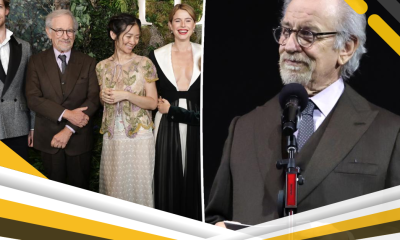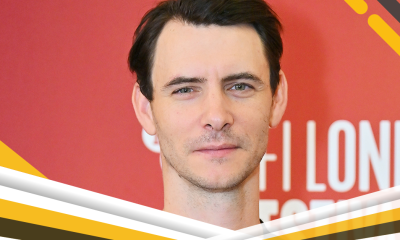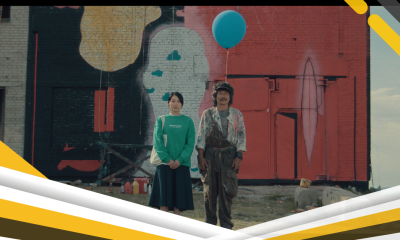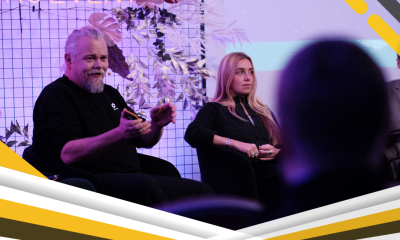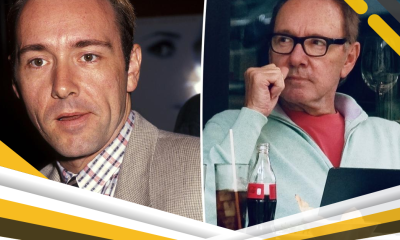Firelight Media Chief Doubles Down Amid Trump Threats and Federal Cuts: ‘Documentary Film Is Not a Luxury’

In an era marked by shifting political landscapes and fluctuating federal support for the arts, institutions dedicated to fostering diverse voices often find themselves at a critical juncture. Firelight Media, a nonprofit organization committed to empowering documentary filmmakers of color, is currently navigating such turbulent waters. Facing significant federal cuts and the broader implications of a challenging political climate, Firelight Media’s President and CEO, Loira Limbal, has taken a firm stance, declaring, “Documentary film is not a luxury.” This assertion underscores a deep commitment to the essential role of non-fiction storytelling, even as the organization strategically adapts to ensure its vital work continues.
The Challenges Faced by Firelight Media
The past year has presented considerable financial hurdles for Firelight Media. The organization experienced a substantial 41% reduction in its annual funding. This significant deficit stemmed from decreased contributions from PBS and the cessation of support from federal funding agencies, including the National Endowment for the Arts (NEA) and the Corporation for Public Broadcasting (CPB).
Loira Limbal has explained that these cuts had a broad impact, affecting a range of Firelight’s programming and institutional infrastructure. The affected funds were crucial for mentorship initiatives, various programs, retreats, operational overhead, and re-granting efforts. Such substantial reductions necessitate a robust and forward-thinking response to maintain the organization’s mission and impact.
Firelight Media’s Enduring Legacy and Mission
Established in 2000 by producer Marcia Smith and Oscar-nominated filmmaker Stanley Nelson, Firelight Media has long been a pivotal force within the documentary community. The nonprofit provides essential resources such as funding, mentorship, and creative development, fostering a vibrant ecosystem for filmmakers of color. Over the years, Firelight Media has supported and produced numerous acclaimed documentaries, including “Miles Davis: Birth of the Cool,” “Freedom Riders,” and “Jonestown: The Life and Death of Peoples Temple”.
Despite the funding challenges, Firelight Media continues to champion new works. Their recent project, “Short: In the Making,” a collaboration with PBS’ American Masters focusing on artists mastering their disciplines, premiered at DOC NYC. The organization’s presence at the festival was notable, with twelve Firelight-supported feature documentaries, including Oscar contenders like “The Perfect Neighbor,” “Cutting Through Rocks,” and “Seeds,” screening at the event.
Loira Limbal’s Vision and Strategic Response
Loira Limbal’s journey with Firelight Media has seen her play various leadership roles. After initially joining in 2009 and spearheading the expansion of programs like the Documentary Lab and the launch of the Groundwork Regional Lab, William Greaves Research & Development Fund, and Impact Campaign Fund, she stepped away in 2021. Her return in April, when she was appointed CEO, was driven by a strong desire to contribute amidst what she describes as a “challenging” and “horrific” moment, particularly following the 2024 election.
Limbal’s leadership has been characterized by a resolute commitment to Firelight Media’s core mission. Understanding the difficult environment, her strategy has been to “double down” rather than scale back. This approach contrasts with some corporate sentiments of “toning down” certain narratives. To address the funding deficit from CPB and PBS, Limbal is initiating a new fundraising strategy, specifically targeting independently wealthy individuals. This shift acknowledges a trend in arts giving, where individual contributions are on the rise while corporate and private philanthropy are declining.
As part of this strategic pivot, Firelight Media has consolidated some of its initiatives. The William Greaves Research & Development Fund and the Impact Campaign Fund have been closed to establish the new Firelight Fund. This focused fund aims to support Black, Brown, and Indigenous stories from development through distribution, prioritizing projects that tell urgent narratives and advocate for social justice. Sixteen projects are slated to receive grants from the $580,000 Firelight Fund, with individual grants reaching up to $50,000. These projects are scheduled to be announced on November 15 at the organization’s 25th-anniversary fundraiser gala.
“Documentary Film Is Not a Luxury”: The Core Philosophy
At the heart of Limbal’s leadership and Firelight Media’s continued resilience is the powerful conviction that “Documentary film is not a luxury”. This statement encapsulates the belief that non-fiction storytelling is an essential component of a healthy arts and narrative ecosystem. For Firelight Media, the voices of filmmakers of color are particularly critical in the current global climate, offering perspectives and narratives that are often underrepresented but deeply necessary for societal understanding and progress.
Documentary films serve as powerful tools for education, empathy, and social change. They bring often-overlooked stories to the forefront, challenge dominant narratives, and foster critical dialogue. In a world grappling with complex social and political issues, the ability to support and amplify diverse storytellers becomes not merely an artistic endeavor but a civic imperative.
Conclusion
In the face of significant financial challenges and an uncertain political future, Firelight Media, under Loira Limbal’s leadership, demonstrates remarkable determination. By “doubling down” on its mission and strategically adapting its funding model, the organization reaffirms its commitment to nurturing documentary filmmakers of color. Limbal’s unwavering belief that “Documentary film is not a luxury” serves as a powerful reminder of the profound impact and indispensable nature of diverse storytelling in shaping public discourse and advancing social justice.



